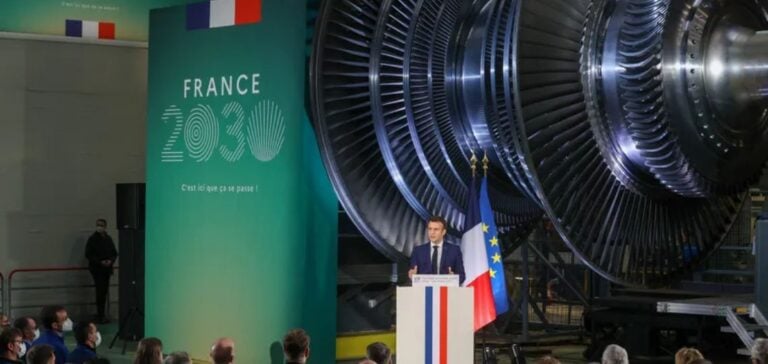The France 2030 plan, inaugurated by President Emmanuel Macron in October 2021, has a financial envelope of 54 billion euros over five years. In February 2022, a specific announcement targets the nuclear sector, with an allocation of 1 billion euros to support the Nuward Small Modular Reactor (SMR) project and other innovative reactors. The goal is ambitious: to build an innovative prototype reactor in France by 2030. This initiative reflects a strong political will to position France as a leader in clean, innovative nuclear energy.
Thorizon receives funding under France 2030
Against this backdrop, Thorizon, a Dutch company spun off from NRG, announces that it has been selected to receive 10 million euros in funding under the France 2030 plan. The company is working on the development of a 250 MWt/100 MWe molten salt reactor (MSR), targeting mainly large industrial customers and utilities. The project stands out for its ambition to set up a pilot reactor system before 2035, using fluoride salts as a low-pressure primary coolant and envisaging the use of epithermal or fast neutron spectra.
Innovative features of the Thorizon project
The particular interest in the MSR concept lies in its ability to use thorium to produce nuclear fuel, requiring an initial source of fissile material, such as plutonium-239. Thorizon’s molten salt fuel integrates long-lived elements from the reprocessing of spent nuclear fuel and thorium, enabling the recycling of long-lived nuclear waste from other nuclear facilities. This project aims to significantly reduce the amount of waste produced, in line with the objectives of the France 2030 plan.
Strategic collaboration and Thorizon expansion
Thanks to this funding, Thorizon benefits not only from financial resources, but also from access to significant expertise in nuclear research, European legislation and business development. The company highlights its accelerated ambition to develop an SMR based on molten salt, envisaging the use of nuclear waste as a fuel source. Earlier this year, Thorizon established a second facility in Lyon, France, underlining the importance of France as a global center of nuclear expertise and strengthening its collaboration with Orano to make nuclear energy more circular.
Thorizon is not alone in its quest for nuclear innovation under the France 2030 umbrella. The company has signed a strategic partnership agreement with French molten-salt reactor developer Naarea, aimed at promoting the development of MSRs in Europe. Stellaria, another CEA spin-off, has also announced that it has received funding under France 2030 for its highly compact chloride salt reactor project, capable of using a wide range of nuclear fuels. These initiatives mark a significant step towards the realization of a new generation of nuclear reactors in Europe, in line with the objectives of the France 2030 plan for clean, sustainable energy.






















